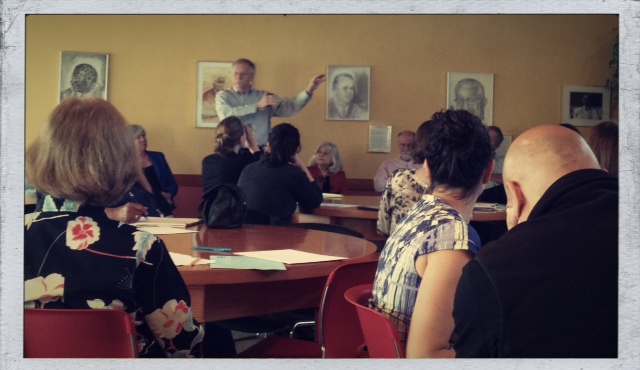Written by Erin Murphy, Director of Education and Advocacy Network at the YWCA Seattle I King I Snohomish.
I attended my very first Seattle/King County Coalition On Homelessness meeting last Thursday. The Coalition invited state legislators to attend the meeting so that we could thank them for their hard work in 2012. We also had the opportunity to ask questions and have a frank policy discussion with decision makers.
There were a number of state legislators present and they all emphasized the need to share personal stories to help policymakers understand the realities of poverty and homelessness. According to the legislators in the room, many policymakers continue to blame the individual experiencing homelessness and think it must the person’s fault somehow. There is a great need to shift this thinking so that legislators understand how structural barriers contribute to homelessness and how they can help create change.
Now I tend to almost always ask a question related to social media. With so much talk about the value of social media and advocacy, not much of that talk comes from the policymakers. So I like to hear their opinions on social media whenever possible.
I posed the following question to the legislators in the room:
“Many of us are already sharing these powerful stories on social media—how can we better use social media to influence policymakers and not simply ‘preach to the choir’?”

Three legislators responded and I’m happy to share their advice below along my own commentary.
Representative Hans Dunshee (D-44)
1) Tap (friend) every legislator. They will friend you back. This is good advice but needs to be qualified. I did follow through on the advice and friended Rep. Dunshee on Facebook. He did friend me back! Unfortunately organizational pages like Firesteel can’t like/friend people’s personal profiles, only other pages. So legislators would have to find and like our pages unless they have a page set up for themselves. As of now, I’m just “personal friends” with Rep. Dunshee which really isn’t effective at all and makes it that much more important to think of how I represent myself on Facebook!
This advice works much better on Twitter because you can follow any Twitter handle regardless of it being a person or organization. Yet even fewer legislators are on Twitter compared to Facebook. There are a few who are pretty active, but a lot of them simply direct you to a general party handle. For example, Rep. Dunshee’s website links you to the @WAHouseDems handle and not a personal one. Facebook is nowhere to be seen on his website.
While the sentiment behind this advice is great, it hits a wall when it comes to Facebook and I’m back to square one pondering this question.
2) Expand beyond the people you know. Good advice and I’ve been trying to do just this across all platforms. I’ll browse Twitter lists that other similar organizations have compiled, see which pages other Facebook pages have liked, etc. Perhaps more importantly, we need to mention and tag legislators (if we can follow/friend them in the first place! Refer back to question 1) so that they know we are actively trying to engage them.
Senator Sharon Nelson (D-34)
3) Don’t miss anyone due to the age/generational difference. Good point. Not everyone is online and we don’t want our stories and messaging to fall through the cracks. Don’t forget to e-mail, call, and sent print materials to those legislators who are not and will never be on social media!
Representative Phyllis Gutierrez-Kenney (D-46)
4) Get those stories out! More good advice but I would still love more pointers on how to invite legislators into the spaces where these stories are being shared. I feel that the stories are being told and very powerfully on social media! Check out Homeless in Seattle as a great example of this. Their About Me reads: “Homeless in Seattle is about raising awareness for those living without shelter and other basic needs through the sharing of photos and personal stories that highlight their beauty.” With over 1,700 fans they have a bigger following than any housing/homelessness advocacy or direct service organization in the area that I am aware of. But as a community page, they can’t friend individual legislators (once again refer to question 1). So how DO we do this? How do we best leverage social media to influence policymakers via storytelling?
5) Use social media to help local papers to pick up the stories. It’s important to localize issues and stories in order to create more ownership of not only the problems, but also the solutions. I’m still not entirely clear on how best to implement this advice. Can anyone else embellish on this?
I’m grateful to all three legislators for sharing their advice! Social media isn’t going anywhere so it is important that we keep asking these questions and of diverse people! The more we challenge and engage our legislators to think through this topic, the better.